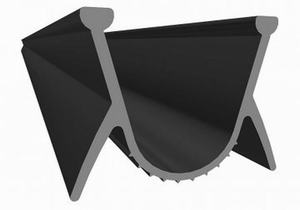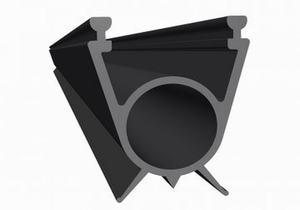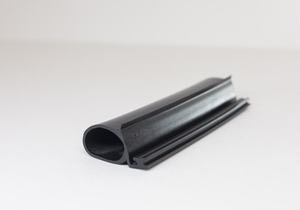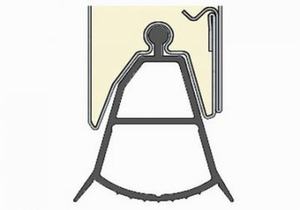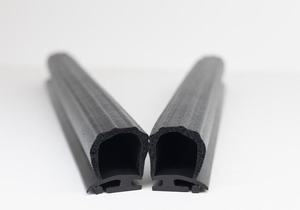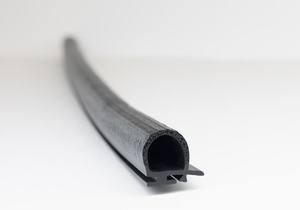Automatic door seals are innovative sealing devices designed to provide efficient and automated weatherproofing and soundproofing solutions for doors in various residential, commercial, and industrial settings. These seals offer a range of benefits, including energy efficiency, noise reduction, and enhanced comfort, while also contributing to the overall safety and security of buildings.
Here’s a comprehensive description of automatic door seals:
- Design and Construction: Automatic door seals typically consist of a durable and flexible sealing element, often made of materials like silicone, neoprene, or EPDM rubber, which conforms to the irregularities of door bottoms and thresholds. The sealing element is housed within a robust casing, usually made of aluminum or stainless steel, which provides structural support and protection.
- Activation Mechanism: Automatic door seals are equipped with a mechanism that triggers the seal to engage when the door is closed and retract when the door is opened. Common activation mechanisms include spring-loaded mechanisms, pneumatic systems, or electromechanical actuators controlled by sensors or switches.
- Installation: Automatic door seals are typically installed at the bottom of doors or along the door perimeter to create a tight seal when the door is closed. They can be surface-mounted or semi-recessed, depending on the specific application and aesthetic preferences. Installation is usually straightforward and can be done during door assembly or retrofitting.
- Sealing Performance: When the door is closed, the automatic door seal is activated, causing the sealing element to extend and make contact with the floor or threshold. This creates a barrier against drafts, dust, insects, moisture, and noise, effectively sealing gaps and preventing air infiltration. The tight seal enhances energy efficiency by reducing heating and cooling losses, thereby lowering energy consumption and utility costs.
- Adjustability: Many automatic door seals feature adjustable settings to accommodate variations in door clearances, floor levels, and operating conditions. This adjustability ensures optimal sealing performance and compatibility with different door types, sizes, and configurations.
- Durability and Weather Resistance: Automatic door seals are engineered to withstand harsh environmental conditions, including temperature fluctuations, humidity, UV exposure, and mechanical wear. The sealing elements are often treated with weather-resistant coatings or additives to enhance their longevity and resistance to degradation.
- Soundproofing Properties: In addition to providing weatherproofing benefits, automatic door seals also contribute to soundproofing and acoustic insulation by sealing air gaps and attenuating noise transmission through doors. This helps create quieter and more comfortable indoor environments, especially in noise-sensitive areas such as offices, conference rooms, hotels, and residential spaces.
- Safety Features: Automatic door seals are designed with safety in mind, incorporating features such as anti-trap mechanisms to prevent fingers or objects from being caught during operation. They comply with relevant safety standards and regulations to ensure reliable performance and user protection.
- Integration with Building Systems: Some automatic door seals can be integrated with building automation systems or access control systems to enable centralized monitoring, control, and scheduling of door seal operation. This integration enhances convenience, security, and energy efficiency by optimizing seal activation based on occupancy, time of day, or environmental conditions.
- Aesthetic Considerations: Automatic door seals are available in various finishes, colors, and styles to complement different architectural designs and interior décors. They can be customized to blend seamlessly with door frames, thresholds, and surrounding surfaces, enhancing the overall aesthetic appeal of the space.
Applications of automatic door seals encompass a wide range of environments, including residential homes, commercial buildings, hospitality establishments, healthcare facilities, educational institutions, and industrial facilities. They are used in exterior doors, interior doors, fire doors, garage doors, soundproof doors, and access doors to improve comfort, energy efficiency, and security.
In summary, automatic door gaskets offer effective and convenient solutions for sealing doors and mitigating air and noise infiltration in buildings. Their advanced design, durable construction, adjustability, and integration capabilities make them indispensable components for enhancing building performance, occupant comfort, and sustainability.
